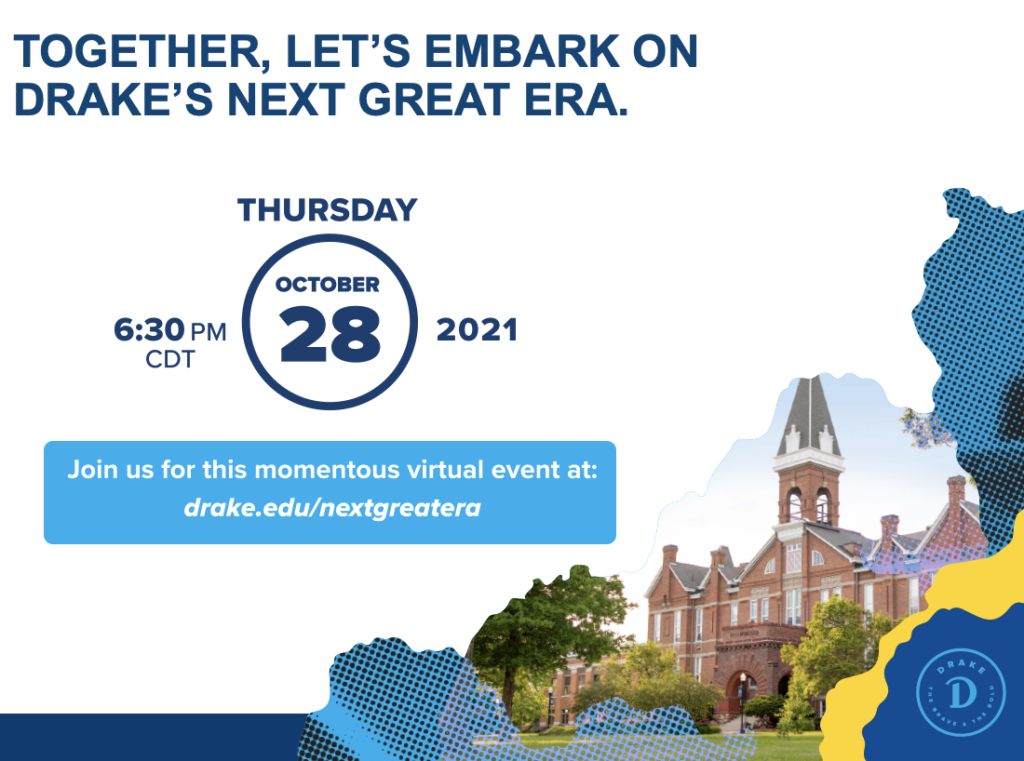The pandemic has rocked the workforce in many ways. One of the struggles we are experiencing—along with many other employers—is getting quality candidates to apply for current openings.
“We have had some great jobs posted recently for entry-level and early-career professionals,” said Julia Gwebu, director of Student Account Services. We are not getting the same number or quality of applicants we have in the past—even for the same positions we’ve recruited for in recent years.”
HR will be examining its recruitment practices and developing more strategic approaches, but that will take time and we have openings now. We are calling on the Drake community to help spread the word about current opportunities.
“With so many jobs available in Des Moines, we could really use a boost from people who already work at and care about Drake,” said Anne Kremer, dean of Admissions.
If you know people who are job-hunting, fit with our core values, care about students, and would contribute to a positive work culture, please encourage them to check out the current opportunities available at Drake. If you have strong connections via LinkedIn, social media, or just connections via email, please share and help get the word out. Below are some sample communications you can modify for your use. Please feel free to include this flyer as well.
Sample Email
Subject Line: Job Opportunities at Drake University
Hello,
I know you have been considering a job change, so I wanted to let you know that Drake University has some positions posted right now that may interest you. You can search for current opening here: https://drake.hiretouch.com/.
We are looking for great people to join the Drake team. I think you would enjoy working here and relate to our core values and mission. If you have questions about working at Drake, I am happy to share my experiences here. If you have specific questions about any of the jobs posted, benefits, etc., feel free to reach out to drakehr@drake.edu.
Thank you,
[Name]
Sample Social Media Post
Hello, friends! If you or someone you know is looking for a new job, please check out the jobs posted at Drake University. You can search for current opening here: https://drake.hiretouch.com/. Right now, there are a variety of opportunities to explore. Please take a look or share with anyone you know who is job hunting. If you have specific questions about any of the jobs posted, benefits, etc., feel free to reach out to drakehr@drake.edu. Go Bulldogs!
— Maureen De Armond, Human Resouces

